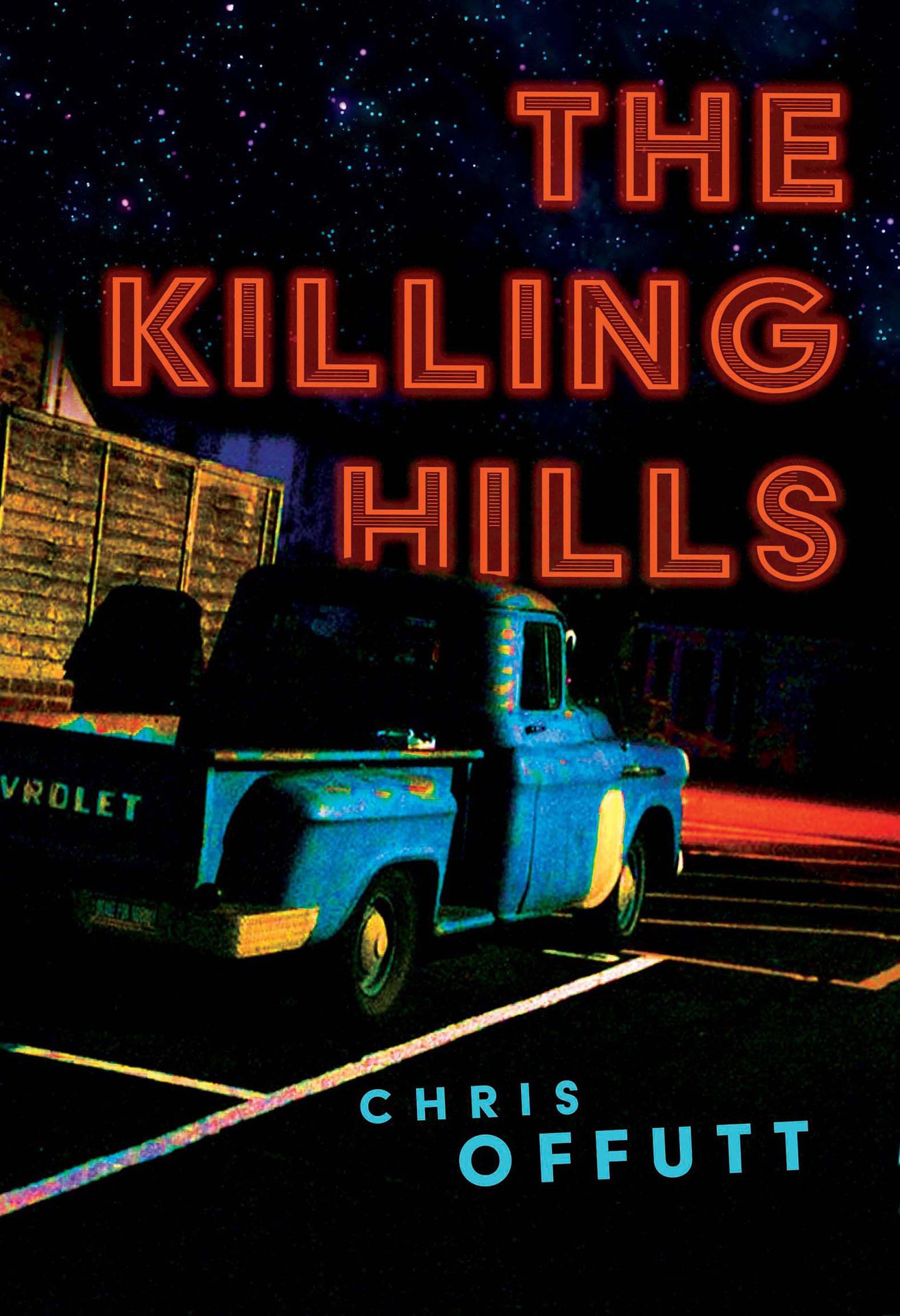Watch the video review on YouTube.
The Killing Hills, by Chris Offutt, is the first in a series of novels featuring Mick Hardin, a combat veteran and Army CID investigator who returns to his home in the Kentucky hill country to visit his pregnant wife. It’s not a happy reunion, and Hardin ends up getting dangerously drunk and sleeping in the woods near the cabin where he was raised by his father and his pawpaw.
His arrival coincides with the d iscovery of the dead body of a local woman in an isolated spot in the hills. Hardin’s sister, Linda, recently appointed the local sheriff, is on task to investigate—but it seems that a variety of suspicious forces are conspiring to get her off the case, or at least keep her off the scent of the actual killer. The local cops want her out of it. The FBI shows up and muscles in on the case, though they lack any credible reason for doing so, other than as a favor to a corrupt politician (Is there any other kind?)
iscovery of the dead body of a local woman in an isolated spot in the hills. Hardin’s sister, Linda, recently appointed the local sheriff, is on task to investigate—but it seems that a variety of suspicious forces are conspiring to get her off the case, or at least keep her off the scent of the actual killer. The local cops want her out of it. The FBI shows up and muscles in on the case, though they lack any credible reason for doing so, other than as a favor to a corrupt politician (Is there any other kind?)
Something stinks, so Hardin helps his sister crack the case, though he does so his own way, moving in the law’s grey areas, and not so grey areas. Throughout, he must deal with the region’s home grown, family-based justice system. It’s “an eye for an eye” country in these killing hills, so readers best mind themselves in these parts hereabouts.
Offutt is a talented writer, and this is apparently his first thriller after a career that includes a number of well-regarded works of fiction. He’s the recipient of a Guggenheim fellowship, among other honors. His depiction of life in the Kentucky hills, with all its rich interpersonal nuance, makes for interesting reading. That said, this book is not really a thriller, despite some breathless reviews from the blurbocracy.
It’s more of a literary novel that delves into the personal pain and conflicted loyalties of several richly drawn characters—who happen to be trying to solve a killing. There is some suspense, but not a lot. Hardin is a compelling character, if you like a certain kind of man’s man, who lives by a code. It’s not my thing, but perhaps I am too much of a New York Jew coastal elite liberal commie to appreciate the wisdom of the old ways, the scent of the dew on old growth forests, and killing someone because they insulted your alcoholic cousin.
There’s an element of American anthropology here, a la Hillbilly Elegy by Marine turned lawyer turned venture capitalist turned Senator JD Vance. In fact, Hardin bears a slight resemblance to Vance. Both are military men who left Appalachia, but preserve close ties to the people of the region and their unique—if troubled—way of life. The people in The Killing Hills are the same folks that CNN producers want to talk to about presidential elections in diners when they go out in search of “real Americans” on what are called “Cletus safaris” by the haughty city folk who run the news media.
This book is not for everyone, but if you like good writing about places you’ll probably never visit, it’s worth a look.
